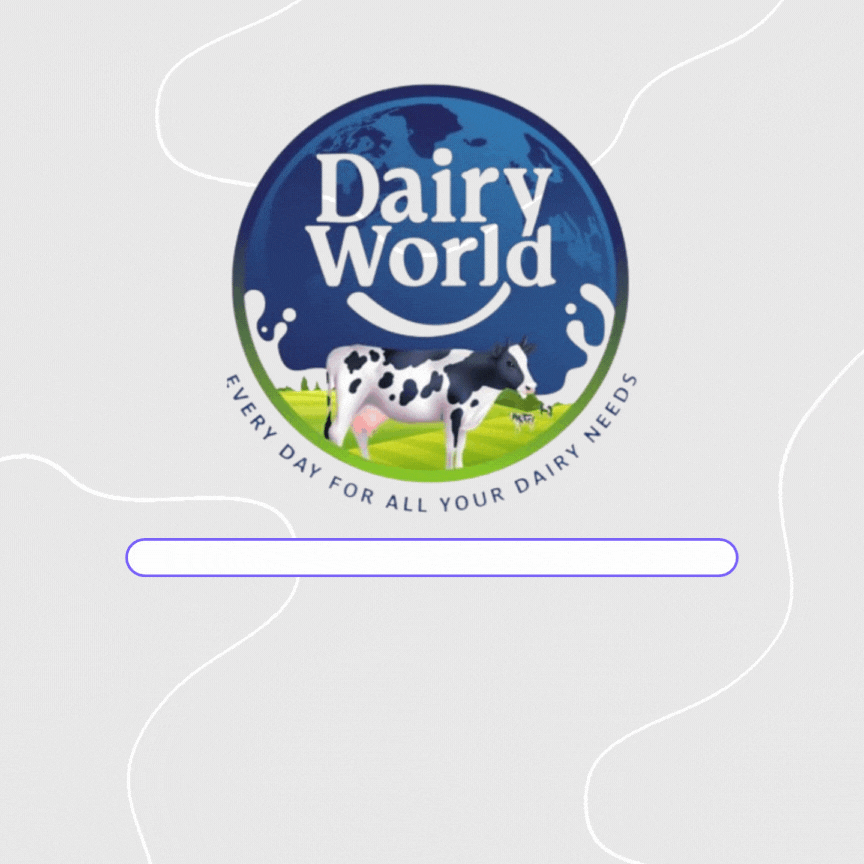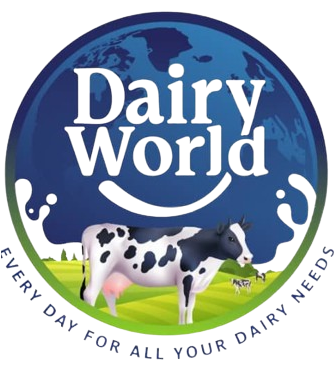Introduction
Milk and dairy products are among the most widely consumed food products globally. Exporting dairy products to international markets presents a significant opportunity for traders and producers looking to expand their operations globally. However, this process is complex and multifaceted, requiring a thorough understanding of the legal requirements and export standards that can impact the success or failure of international trade at every stage. In this article, we will comprehensively review these requirements and standards to help international traders enter this field with greater awareness. Stay with us until the end of the article.
The Role of Legal Requirements in Dairy Product Exports
One of the most critical aspects of exporting dairy products is understanding and complying with the legal requirements of both exporting and importing countries. These regulations are designed to ensure the quality and safety of products and to prevent the entry of unsuitable or hazardous goods into international markets.
Legal Requirements for the Exporting Country
In the exporting country, dairy products must meet a set of legal requirements before being shipped to international markets. These requirements include:
- Health Certificates: Dairy products must be thoroughly inspected for health compliance and possess relevant health certificates. These certificates, usually issued by government agencies, indicate that the product is free from contamination or disease.
- Veterinary Licenses: dairy products originating from animals must be approved by veterinarians. These licenses certify that the animals were raised under appropriate conditions and that the produced goods are safe and healthy.
- Product authenticity certificates: These certificates ensure that the exported products are genuinely produced in the country of origin and that the product specifications match those declared.
Legal requirements for the importing country
The importing country also has stringent regulations for accepting dairy products. These regulations may vary depending on the specific conditions of each country, but they commonly include:
- Restrictions on Additives: Countries may impose limitations on the use of certain additives in dairy products. These restrictions are usually implemented for health or food safety reasons.
- Residue Limits: dairy products must not contain drug residues above permissible levels. These criteria are strictly monitored by relevant authorities to ensure compliance.
- Packaging and Labeling Regulations: Packaging and labeling of dairy products must conform to the standards of the importing country. These standards typically include detailed information such as nutritional content, production and expiration dates, and storage conditions.
Safety Standards in the Dairy Industry
Ensuring the safety of dairy products is a fundamental concern in the dairy industry. Various factors, such as the environment in which animals are raised, processing and packaging methods, and storage and transportation conditions, impact the safety of dairy products. Specific standards have been established to guarantee the safety of these products.

HACCP (Hazard Analysis and Critical Control Points)
One of these standards is the HACCP (Hazard Analysis and Critical Control Points) system, which focuses on identifying and managing potential risks in the dairy production and processing process. This system determines critical control points and outlines necessary actions to prevent, eliminate, or reduce hazards to safe levels. HACCP is recognized and endorsed by international organizations such as the World Health Organization (WHO) and the Food and Agriculture Organization (FAO) of the United Nations.
Good Manufacturing Practices (GMP)
In addition to HACCP, another important standard in the dairy industry is the Good Manufacturing Practices (GMP) system. GMP provides specific guidelines for dairy producers to ensure that product quality and safety are consistently maintained at high levels. These standards address various issues, including employee hygiene, facility and equipment design, and maintenance. GMP certification is one of the internationally recognized certifications in the food, pharmaceutical, cosmetic, and personal care sectors and is globally accepted.
Quality Standards in Dairy Products
In addition to safety, maintaining high quality in dairy products is crucial for meeting consumer expectations. Quality in dairy products encompasses attributes such as taste, texture, appearance, and nutritional value. Quality standards ensure that these attributes are consistently maintained and that consumer needs are met.
ISO 9001 for Quality Management Systems
One prominent quality standard in the dairy industry is ISO 9001, issued by the International Organization for Standardization. ISO 9001 provides a framework for Quality Management Systems (QMS) that can be applied in the processing and production of dairy products. This standard requires organizations to establish and maintain a quality management system focused on meeting customer needs and continually improving performance.
Safe Quality Food (SQF) Program
The Safe Quality Food (SQF) program is another example of quality management systems used in the dairy industry. Recognized globally by retailers and food service providers, the SQF program offers a comprehensive approach to managing the safety and quality of dairy food products. This program includes requirements for facility design, supplier management, product testing, and employee training to ensure that dairy products meet rigorous quality standards.
International Standards for Dairy Product Exports
Export standards for dairy products are extensively set by international organizations to ensure that products entering various markets meet the required quality and safety standards. These standards help international traders confidently introduce their products to global markets.
Codex Alimentarius
The Codex Alimentarius is a collection of international standards developed by the Food and Agriculture Organization (FAO) and the World Health Organization (WHO). These standards include criteria for safety, quality, and nutritional value of dairy products. Adhering to these standards is essential for success in international markets.
Hygiene and Safety Standards
Dairy products must be thoroughly examined for hygiene and safety. These examinations include tests for the presence of bacteria, pathogens, and other harmful agents. Additionally, products must be free from any chemical or physical contaminants.
Packaging and Transportation Standards
The packaging of dairy products should be designed to prevent spoilage and contamination. Moreover, packaging must facilitate safe and easy transportation. International standards for packaging include the use of safe and durable materials that can withstand various transportation conditions.
Environmental Standards
Many countries have stringent environmental standards for imported products. These standards include restrictions on the use of harmful chemicals and criteria for minimizing environmental impacts during the production and packaging processes.
Dairy Standards in Iran
In Iran, various national standards are defined for food products such as wheat flour, bread, spices, and condiments. These standards include product specifications and testing methods for determining these specifications. Testing methods in the food industry involve a range of processes and techniques used to evaluate the quality and safety of food products. These methods may include physical, chemical, and microbiological tests.
The Institute of Standards and Industrial Research of Iran (ISIRI) is responsible for developing and overseeing specific standards for food products in Iran. These standards cover various sectors, including dairy products.
Key Iranian Standards for Dairy Products
ISIRI 292:2015, Milk and Dairy Products
This standard addresses the technical and quality specifications for milk and dairy products such as yogurt, cheese, and butter. It defines the quality, safety, and composition criteria for these products. The goal of this standard is to ensure the health and quality of dairy products produced in Iran.
ISIRI 1554:2019, Pasteurized Milk
This standard outline the specifications and hygiene requirements for pasteurized milk. It covers aspects such as pasteurization conditions, fat and protein content, and other physical and chemical properties of pasteurized milk.
ISIRI 1567:2019 – Cheese
This standard addresses the technical and quality specifications for various types of cheese, including criteria such as composition, taste, texture, and hygienic characteristics of cheeses produced in Iran.
ISIRI 1459:2019 – Yogurt
This standard focuses on the quality and characteristics of yogurt, including production conditions, acceptable microorganisms, and physical and chemical properties.
ISIRI 1034:2017: Butter
This standard specifies the technical and quality characteristics of butter, including fat percentage, structure, and color.
These standards are designed to ensure the quality and safety of dairy products in Iran and require producers to adhere to specific hygiene and quality conditions. ISIRI standards play a crucial role in protecting consumer health and improving the quality of food products in the country.
Challenges in Dairy Product Export
Adhering to legal requirements and export standards in the dairy sector can present numerous challenges for traders. These challenges include ongoing changes in regulations, cultural and language differences, and the need to coordinate with multiple entities and organizations.
Ongoing Changes in Regulations
Laws and regulations are constantly evolving, which can create significant difficulties for traders. To address this challenge, traders need to stay continuously informed about regulatory changes and work closely with legal and health consultants.
Cultural and Language Differences
Cultural and language differences can complicate the export process. To mitigate this challenge, traders should familiarize themselves with the culture and language of the target countries and, if necessary, utilize the services of translators and cultural advisors.
Need for Coordination with Multiple Entities
Exporting dairy products requires coordination with various entities and organizations, including government bodies, customs authorities, and international organizations. To succeed in this area, traders must collaborate closely with these entities and have a thorough understanding of their operational processes.
Effective Strategies for Success in Dairy Product Export
Partnering with Specialized Export and Import Companies
One effective strategy for mitigating challenges and enhancing success in dairy product export is partnering with specialized export and import companies. These companies can provide expert consulting and operational services to streamline the export process and prevent legal issues.
Employing Quality Management Systems
Additionally, employing quality management systems such as ISO 22000 and HACCP can assist dairy producers in producing higher-quality products while meeting international standards. These systems help in identifying and controlling potential hazards in the production chain, ensuring that the final products maintain high levels of safety and quality.
Conclusion
Exporting dairy products to international markets presents a significant opportunity for global traders, but success is contingent upon meticulous adherence to legal requirements and export standards. Awareness of these requirements and standards, utilization of skilled consultants and experts, and implementation of quality management systems can help traders navigate this complex and challenging process effectively. By following these principles, traders can confidently introduce their dairy products to global markets and reap the benefits of this trade.
For specialized consulting and comprehensive services in dairy product export and import, please visit the “Contact Us” section and take the necessary steps to succeed in the global market with our assistance.


